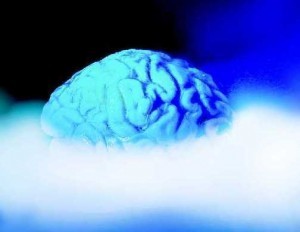
Numerous authors have reported on impaired cognition in patients with spontaneous intracranial hypotension secondary to spinal CSF leaks. The effects on cognition can range from subtle to severe. There are reported cases of severe impairment mimicking dementia.
These authors opted to investigate this further by doing resting-state functional magnetic resonance imaging (fMRI) and working memory testing before surgery and one month later in 15 patients with spontaneous intracranial hypotension.
They confirmed fMRI changes and working memory deficits pre-operatively AND that these were reversed after successful surgery.
For patients suffering with cognitive dysfunction secondary to intracranial hypotension, this study helps to validate their experience and offers reassurance that these symptoms should resolve with treatment. Family members, employers and disability insurers may be more understanding of these difficulties endured by patients.
Of course, more study is needed to evaluate for the neurologic sequelae of long-term intracranial hypotension.
Reversible alterations of the neuronal activity in spontaneous intracranial hypotension
Amemiya S, Takahashi K, Mima T, Yoshioka N, Miki S, Ohtomo K.
Cephalalgia. 2015 May 1. pii: 0333102415585085. [Epub ahead of print]
Abstract
AIM:
The aim of this article is to investigate the pathophysiology underlying the alternation of the cognitive function and neuronal activity in spontaneous intracranial hypotension (SIH).
METHODS:
Fifteen patients with SIH underwent resting-state functional magnetic resonance imaging and working-memory (WM) test one day before and one month after a surgical operation. Alteration of the cognitive function and spontaneous neuronal activity measured as amplitude of the low-frequency fluctuations (ALFF) and the functional connectivity of the default-mode network (DMN) and frontoparietal networks (FPNs) were evaluated.
RESULTS:
WM performance significantly improved post-operatively. Whole-brain linear regression analysis of the ALFF revealed a positive correlation between cognitive performance change and ALFF change in the precuneus while a negative correlation was found in the bilateral orbitofrontal cortices (OFCs) and right medial frontal cortex (MFC). The ALFF changes normalised with the WM performance improvement post-operatively. The FPN activity in the right OFC was also increased pre-operatively. Partial correlation analysis revealed a significant correlation between WM performance and right OFC activity controlled for right FPN activity.
CONCLUSIONS:
The abnormal activity of the OFCs and MFC that is not originating from the synchronous intrinsic network activity, together with the decreased activity of the central node of the DMN, could lead to cognitive impairment in SIH that is reversible through restoration of the cerebrospinal fluid.
PMID: 25934316
